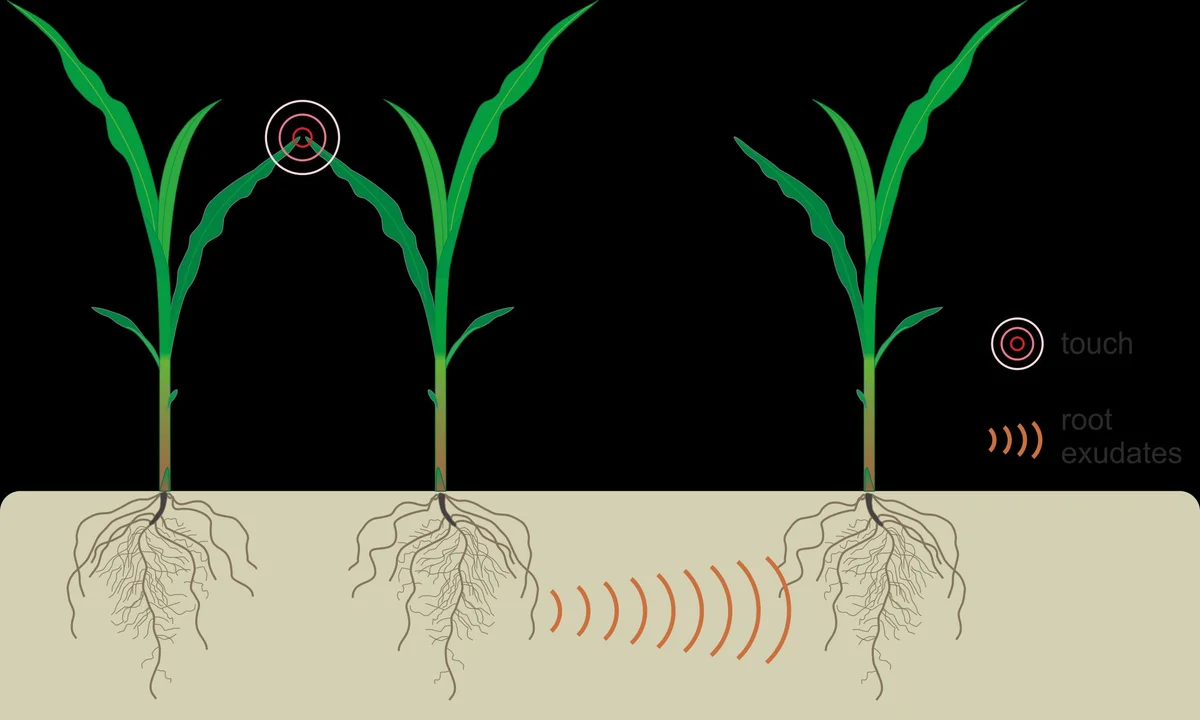🌿How Plants “Talk” to Each Other – Plant Communication Explained!
By~ Scholar Planet
Created At: 11 Jun, 2025

Imagine you're in a jungle, surrounded by trees and plants. It’s quiet, right? But what if I told you… the plants are talking! 😲
No, they don’t speak like humans or animals. But yes, plants do communicate — in their own amazing way. Let’s dive into this leafy world and find out how our green friends share secrets, send warnings, and even help each other grow.
🪴But… Plants Can’t Talk, Can They?
You're right — plants don’t have mouths, ears, or brains. But that doesn’t stop them from talking! They just use different methods. Instead of words, they use:
-
Chemicals
-
Roots
-
Smells
-
Fungi! (Yes, mushrooms!)
Sounds like a plant superhero squad, right? 🌟
🌬️ Plant Gossip via Air: Chemical Messages
Let’s say a caterpillar starts munching on a leaf. The plant thinks, “Uh-oh! I’m being eaten!” 🐛
So, what does it do?
It releases a special smell — like a perfume, but not a nice one! This chemical message travels through the air to nearby plants, warning them: “Danger! Hungry bug incoming!”
What do the other plants do? They get ready for attack by making their leaves taste bitter or producing chemicals that scare away the insects. Pretty smart, right?
✅ Example: Corn plants can release a smell that calls wasps to eat the bugs attacking them. Talk about calling in backup!
🌱 Root-to-Root Chatter
Underground, things get even more exciting.
Plants have roots, and sometimes their roots touch the roots of other plants. Through this connection, they can send signals like nutrients, water needs, or even alerts about diseases.
Some scientists call this the “wood wide web” – like the internet, but made of tree roots and fungus!
🍄 Fungi: The Secret Network
Now here comes the coolest part… fungi help plants talk!
Have you ever seen mushrooms in a garden or forest? Those are just the tip of the iceberg. Under the ground, fungi grow in long, thread-like structures called mycelium.
These tiny threads connect with plant roots and create a network. Through this network:
-
Trees send food and nutrients to baby trees.
-
Sick plants get help from healthy ones.
-
Trees warn each other if bugs or disease are coming.
It’s like a magical telephone line under the soil! 📞🌱
🌳 Tree Moms and Forest Families
In big forests, scientists found that older trees (Tree Moms!) care for younger ones.
They give them extra food through the fungal network, especially when the baby trees are small and can’t get enough sunlight. These tree moms even recognize which trees are their “kids”!
Isn’t that heartwarming? A whole forest family working together!
🎨 Let’s Do a Fun Activity!
Want to “see” plant communication at home?
🧪 Try this:
-
Get two potted bean plants.
-
Put them close together.
-
Gently break a leaf on one plant (don’t hurt it too much!).
-
After a few days, check both plants.
-
Sometimes, the second plant may show signs of preparing for a threat — even though it wasn’t touched!
Cool, right? You're now a plant scientist in training! 🧑🔬🌿
🌻 Why Should We Care?
Plants are amazing team players. They help each other survive, share food, and keep bugs away — all without making a sound!
So next time you walk through a garden or forest, remember: there’s a whole conversation happening… right under your feet. 🌍💚
💡 Did You Know?
-
Acacia trees in Africa warn each other about giraffes!
-
Tomato plants “sniff” out danger from nearby plants.
-
Some flowers change colors to talk to bees! 🐝
🧠 Final Thought
Plants may not have voices, but they’re never silent. They talk in smells, signals, and underground whispers. So open your eyes (and nose!) and listen to the secret world of plant talk — it’s greener and smarter than we ever imagined.
📢 Share With Your Friends!
🌿 Did you enjoy this blog? Try this at home, or tell your friends about it.
💬 Comment your favorite plant and what you think it would say if it could talk!
📲 Don’t forget to share this with your class and post on your story with the tag: scholarplanet
